Crucial facets of talent can help companies adapt
What is the ACCA’s vision for cooperation, investment, and development of its members in Vietnam in the coming time?
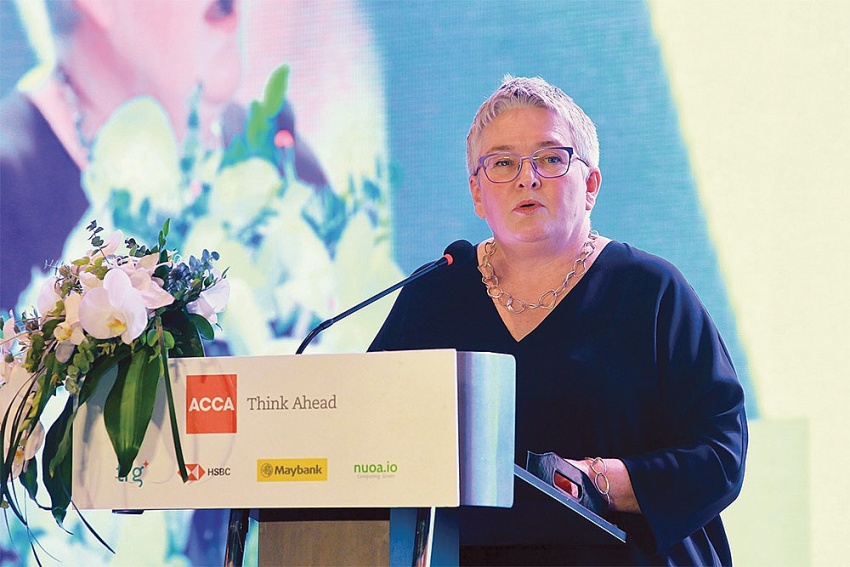 |
| Helen Brand, ACCA chief executive |
We see tremendous economic opportunities in Vietnam, and if these opportunities are to be sustainable, they require the skills and capabilities that professional accountants bring.
Our vision is to contribute to the future success of Vietnam by leveraging the skills and capabilities of our current and future members in finance, accounting, technology, and sustainability. These competencies will help build the sustainable businesses and economies that we all aspire to live in.
By fostering these essential skills, we aim to support the creation of a robust economic framework in Vietnam that can thrive over the long term, ensuring prosperity and stability for all.
What outcomes have been achieved so far in realising the commitment of turning accountants into ‘true value directors’?
The ACCA produced its first report on environmental accounting back in 1991, establishing a long-standing tradition of recognising the importance of sustainability. To create sustainable businesses and consider the wellbeing of our people and planet, alongside our prosperity, it is essential to account for our actions. This involves understanding the impact businesses have on natural capital, human capital, and the climate.
Over the years, we have incorporated this understanding into the standards and qualifications used by our professional accountants. Our qualifications educate future members on how to integrate sustainability strategies, conduct sustainability reporting, and gather the necessary data to make informed decisions for sustainable business practices.
In addition to our qualifications, we have developed sustainability certificates and diplomas. These programmes allow those who are already qualified to relearn or acquire new knowledge to embed sustainability practices within their businesses or to act as advisors to other businesses.
We are deeply committed to achieving net-zero emissions and have implemented numerous internal policies to support this goal. However, our most significant impact comes from our extensive network of a quarter of a million members and half a million students worldwide. By equipping them with the right skills and knowledge, we empower them to drive sustainable business practices globally.
Can you share a specific example of how the company has facilitated connections between financial institutions and government bodies to promote green policies?
The Asia-Pacific Dialogue 2024 in Hanoi is a prime example of our super-connecting efforts. We have brought together policymakers, regulators, and representatives from the Ministry of Finance in Vietnam, who joined us to discuss sustainability and green finance issues they aim to promote.
In addition to these key stakeholders, we had participants from 13 countries across the Asia-Pacific region attending. We ensured that the event was not just about listening to presentations but fostering a true dialogue.
This gathering is the continuation of an ongoing conversation, and our goal is to sustain this dialogue beyond the conference. The ACCA’s unique position enables us to facilitate these crucial connections between educators, regulators, policymakers, and employers, fostering collaboration and progress in sustainability and green finance across the region.
How has the ACCA’s support helped firms achieve global standards?
We have been deeply involved in sustainability reporting for a decade, and I have personally been working on this issue for the past three years. As I mentioned, the International Integrated Reporting Council, which initially championed the integration of reporting and the need for sustainability standards, has evolved.
Today, we have the International Sustainability Standards Board, which was established under the IFRS Foundation. It issued its first two global sustainability standards the year before last. The ACCA has strongly supported this development and is one of its capacity-building partners, promoting the worldwide adoption of these standards.
We are firm advocates for global standards, particularly regarding critical issues like climate action. We believe that addressing such global challenges requires uniform standards. No single country can tackle these issues in isolation; it must be a collective global effort with all businesses and organisations adhering to the same standards.
By promoting and supporting these global standards, we aim to ensure that sustainability practices are effectively implemented and maintained worldwide.
What strategies does the ACCA advocate for developing talent in line with sustainable development goals, and how it is preparing future accountants to address related challenges?
It’s really about integrating all the necessary facets of talent. It’s not just about technology, sustainability, finance, or accounting alone. The ability of the next generation of professional accountants to learn, unlearn, and relearn is crucial. We aim to develop this adaptability in people to prepare them for ever-changing circumstances.
This includes addressing issues related to sustainability, encompassing climate impacts, and broader societal impacts. We’re also redefining how we talk about value in the future. We have discussed the role of true value directors instead of just financial directors because the creation of value in a business will be judged on much broader terms than simply profit and loss.
It is the flexibility and excitement of continuous learning that we want to instil in the next generation of professional accountants. There has never been a better time to join the profession, as we know that future generations intend to work with purpose, and there is no greater purpose than contributing to the sustainability of our planet.
What the stars mean:
★ Poor ★ ★ Promising ★★★ Good ★★★★ Very good ★★★★★ Exceptional
Related Contents
Latest News
More News
- Masan Consumer names new deputy CEO to drive foods and beverages growth (February 23, 2026 | 20:52)
- Myriad risks ahead, but ones Vietnam can confront (February 20, 2026 | 15:02)
- Vietnam making the leap into AI and semiconductors (February 20, 2026 | 09:37)
- Funding must be activated for semiconductor success (February 20, 2026 | 09:20)
- Resilience as new benchmark for smarter infrastructure (February 19, 2026 | 20:35)
- A golden time to shine within ASEAN (February 19, 2026 | 20:22)
- Vietnam’s pivotal year for advancing sustainability (February 19, 2026 | 08:44)
- Strengthening the core role of industry and trade (February 19, 2026 | 08:35)
- Future orientations for healthcare improvements (February 19, 2026 | 08:29)
- Infrastructure orientations suitable for a new chapter (February 19, 2026 | 08:15)

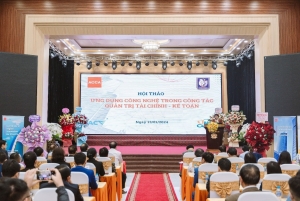
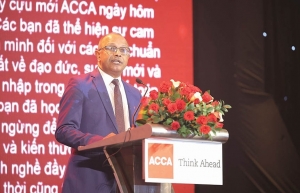


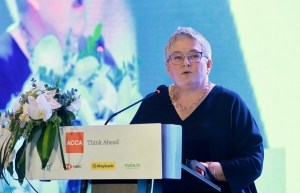
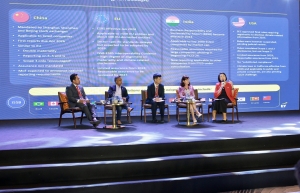
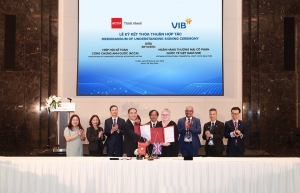


 Tag:
Tag:



















 Mobile Version
Mobile Version